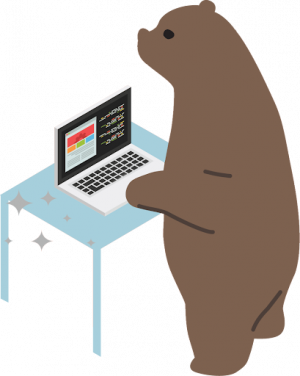
Minimal Computing is a digital humanities practice of creating digital scholarship with the fewest resources possible that will still meet the goals of the project. The Center for Digital Scholarship (CDS) is proud to offer a workshop series for fall 2025 around this topic in order to help researchers understand minimal computing, how to gather data, how to prepare that data for text analysis and interoperability, and then how to clean that data with minimal computing in mind. While the focus of the workshop is around digital scholarship, the skills and frameworks proposed will be applicable broadly. The workshops count towards the Digital Tools and Methods requirement of the Digital Humanities Doctoral Certificate program.
All workshops will take place in person in the Patrick Ma Digital Scholarship Lab on the main floor of the Rockefeller Library and/or on Zoom. Registration is required.
Workshops
Intro to Minimal Computing: What is it and how can I use it to design and build my project?
- Date: September 8, 2025
- Time: 10 to 11 a.m.
- Location: Digital Scholarship Lab and on Zoom (hybrid)
- Instructor: Khanh Vo, Digital Humanities Specialist
What is minimal computing? This workshop will introduce fundamental principles and practices of minimal computing with a focus on two key ethical areas: reducing the environmental impacts of computation and ensuring broad, equitable access to digital resources by minimizing technical dependencies. We will explore how to balance those ethical goals with the practical needs of digital humanities scholarship through tools like static site generators and minimal design for accessibility.
Teaching Machines to Read: Making a Machine-Actionable Dataset from Archival Documents: Gathering Data and Using Optical Character Recognition
- Date: September 24
- Time: 10 to 11:30 a.m.
- Location: Zoom (online only)
- Instructor: Cody Carvel, Digital Scholarship Technologist
To make data “machine usable,” often images of text must be converted into machine-readable text. This workshop focuses on making a machine-actionable dataset from archival documents including gathering data and using optical character recognition (OCR). Join us as we introduce the process of converting images of text into machine-readable text. Participants will learn how to use OCR software to make scanned documents or images of text searchable and editable. The workshop will also cover converting images of tabular data to usable tables.
Basic Natural Language Processing with Python
- Date: Oct 6, 2025
- Time: 2 to 3:30 p.m.
- Location: Digital Scholarship Lab (in person only)
- Instructor: Micah Saxton, Humanities Librarian
Meaningful text analysis may require automatically tagging your text according to parts of speech or it may require automatically extracting proper names and locations from your text. Each of these tasks can be accomplished with a little Natural Language Processing (NLP). In this workshop we will discuss the basic principles of NLP and then we will practice using some basic tools for NLP tasks like part of speech tagging and named entity recognition.
Making Your Data Interoperable
- Date: Oct 22, 2025
- Time: 1:30 to 2:30 p.m.
- Location: Digital Scholarship Lab and on Zoom (hybrid)
- Instructor: Patrick Rashleigh, Head of Digital Scholarship Technology Services
Digital scholarship work often involves many different tools and processes and may be integrated with other research initiatives. How does one ensure that one’s data will work throughout? This hourlong workshop will present some guidelines for keeping your data in a form that is as flexible as possible as it moves through the research process from collection to analysis to publication and preservation.
Cleaning Your Data with OpenRefine
- Date: November 4, 2025
- Time: 1 to 2:30 p.m.
- Location: Digital Scholarship Lab (in person only)
- Instructor: Patrick Rashleigh, Head of Digital Scholarship Technology Services
OpenRefine is a powerful tool for cleaning many kinds of data, both numerical and textual. “Data cleaning” sounds like some sort of janitorial activity — a more productive way to describe what we are doing is to say that we are modeling and remodeling information. After this quick introduction to OpenRefine, you will be well-prepared to begin your work and continue your learning from the many tutorials and examples on the web (or you can make a follow-up consultation).
